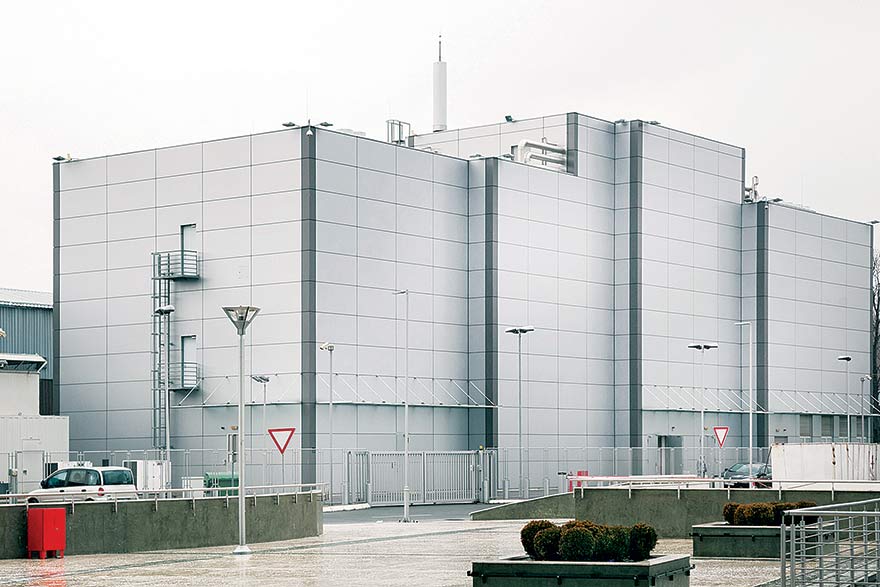The traditional telecommunications industry has to date focused on two important business models: end user services and the development and management of telecommunications networks. With the latest technological revolution and digital transformation, end user services have become increasingly diverse and competition has increased significantly
Today’s electronic communications market includes platforms, as well as OTT (over-the-top) operators whose services bypass traditional network operators. Additionally, there is also a growing focus on service packages and data processing.

“Due to these changes, infrastructure has become a service in itself (IaaS) and a new business model – “network as a service” (NaaS) – has been developed. Moreover, the accelerated development of 5G technology is bringing many new services and industrial users who will use this technology as a tool in their business. A dynamic setting requires constant investment and quality in infrastructure management. As the investment cycle in the field of infrastructure lasts longer than 15 years, companies aim to make the most of infrastructure services and offer them to other players on the market. This naturally leads to the separation of the two aforementioned business models,” says CETIN Serbia CEO Vladimir Skulić, speaking in this interview for CorD Magazine.
Tell us more about how CETIN was established?
CETIN was established five years ago as an infrastructure company in the Czech Republic, when it was separated from the largest Czech telecommunications company, O2, in order to respond adequately to new market trends. PPF Group was the first in Europe to recognise this model as being the most efficient and decided to apply the acquired knowledge within its other telecommunications companies in the region of Central and Eastern Europe.
Thus, the CETIN Group set its focus on improving the quality of telecommunications infrastructure, ensuring the efficient use of resources and capacities, as well as implementing new solutions. On the other hand, by taking care of infrastructure, we have enabled the mobile operator to dedicate itself fully to the development of services intended for end users.

In Serbia, CETIN was established as a spin-off from Telenor in the middle of last year. The company employs almost 300 highly qualified employees who have decades of experience in the telecommunications and IT industries. We manage valuable infrastructure: more than 2,200 radio base stations and over 15,000 kilometres of fibre optics. We provide services not only to Telenor, Mobi Bank and other members of our group, but also to all others who are interested in the capacities we own.
What services does CETIN provide on the Serbian and other markets?
The CETIN Group currently operates as a regional company in the Czech Republic, Hungary, Serbia and Bulgaria. We proudly claim that we are one of the bridges in the region that connect the east, west, north and south of Europe, as well as Europe with Asia and the rest of the world. This is due to the fact that, in the wholesale sector, CETIN in Serbia provides services to dozens of national and international users.
With the understanding that differences exist in the needs of our clients, CETIN is fully focused on defining services and providing IaaS and NaaS services for mobile networks, telehousing services in four of our data centres, connectivity solutions and leasing national and international capacities, leasing modern optical infrastructure, services in the field of security operations, such as protection against DDoS attacks etc.

Leveraging on our competences, experience and the capacity of infrastructure, we are able to provide services to various “demanding” industries, such as banking and ICT, as well as offering unique consulting services derived from the long-term joint work of expert teams. Finally, we are focused on cooperating with other electronic communications operators in the field of capacity leasing and collocation, especially considering the European market’s trend of infrastructure sharing – a concept that has been increasingly encouraged by regulators.
Things are changing at an incredible rate in the telecommunications industry. What is the trend now?
Telecommunications are still primarily driven by technological developments and needs that come directly from the market. Our journey started with the second generation of networks, where voice communication was the main channel. During recent years we’ve been focused mostly on building the fourth generation of the network. This journey has been gradually evolving over the course of the last 20 to 30 years, and now the fifth generation is bringing major change.
The network is becoming increasingly complex each day, and digitalisation is an integral part of that. It is essential to be dynamic and adaptable. Using analytics and artificial intelligence, such as machine learning, may help us raise the level of automation and allow us to better predict events that may happen, and to do so almost in real time.As the network develops and grows, so does the responsibility to protect our network and its users. In the field of information security, we operate according to the ISO 27001 and ISO 27701 standards. We are well prepared thanks to our close collaboration with the security teams of PPF companies that operate in countries that are subject to EU regulations, which allows us to remain a step ahead of cyber security threats.
The crisis caused by the novel coronavirus has demonstrated that internet access is important to people for both private and business needs. Data traffic is constantly increasing, and the new reality that’s come as a consequence of the pandemic has shown that users also talk more often and for longer, and don’t just communicate via applications or the internet. I’m proud to note that our network worked great during the state of emergency, as we quickly adapted and reacted on time.
Given that Serbia also plans to develop a 5G network, could you tell us what changes are brought by this technology of the future?
The fifth generation brings incredible change – the transfer of data at high speed, almost in real time, and the ability to have a huge number of connections active at the same time. This technological revolution brings great market and geopolitical competition, and the speed of its implementation will determine who will take economic pole position for the decade to come. It should be pointed out that the fifth generation is not just the next ‘G’ on this journey. Expectations are significantly higher – that it will enable different industries to innovate their business in a smart way and to interconnect different industries and ecosystems; 5G is seen as the basis and precondition for a smart society and the transformation of entire industries. In order for all this to be supported and for end users to experience the benefits of the new technology, it is necessary to encourage innovative partnerships within the entire ecosystem, from mobile operators, infrastructure providers, equipment manufacturers, numerous local partners and start-ups, to improve the regulatory environment and engage the general public through accountable informing.
That’s why we believe that we will witness the creation of completely new clusters of products and services on the market, for which we are preparing the basis in terms of modern infrastructure.
What will it take for Serbia to catch up with countries that are advanced in the development of their 5G networks?
As with the other operators, building infrastructure for the fifth generation of the network is in our focus, especially when the regulator announces a spectrum auction. Bureaucracy is still a major challenge for all operators – obtaining permits for setting up one base radio station takes an average of over four months and the procedure is inconsistent. It is necessary to improve regulations in the field of environmental protection and establish a uniform practise, but also to gain the trust of citizens in the safety of this technology. Just as electricity reached every home in the middle of the last century, now high-speed broadband internet is the basis for accomplishing our needs and rights. The EU’s priority is for all its citizens to have access to the gigabyte network and for all populated areas to have 5G by 2030. We also endorse the projects of our Ministry of Telecommunications, which are leading Serbia in that direction. For starters, all schools will receive broadband via fibre optics that will bring high-speed internet connectivity to all rural parts of Serbia.